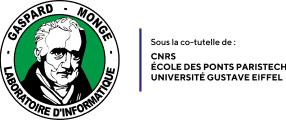The Freeze-Tag Problem, introduced in Arkin et al. (SODA’02) consists of waking up a swarm of n robots, starting from a single active robot. In the basic geometric version, every robot is given coordinates in the plane. As soon as a robot is awakened, it can move towards inactive robots to wake them up. The goal is to minimize the wake time of the last robot, the makespan.
Despite significant progress on the computational complexity of this problem and on approximation algorithms, the characterization of exact bounds on the makespan remains one of the main open questions. In this paper, we settle this question for the L1-norm, showing that a makespan of at most 5r can always be achieved, where r is the maximum distance between the initial active robot and any sleeping robot. Moreover, a schedule achieving a makespan of at most 5r can be computed in optimal time O(n). Both bounds, the time and the makespan are optimal. This implies for the L2-norm a new upper bound of 5\sqrt{2}r \approx 7.07r on the makespan, improving the best known bound so far (5+2\sqrt{2}+\sqrt{5})r \approx 10.06r.
Along the way, we introduce new linear time wake-up strategies, that applies to any norm, and that show that an optimal bound on the makespan can always be achieved by a schedule computable in linear time.
Localisation
Salle de séminaire 4B125 (bâtiment Copernic)
5 Boulevard Descartes 77420 Champs-sur-Marne
